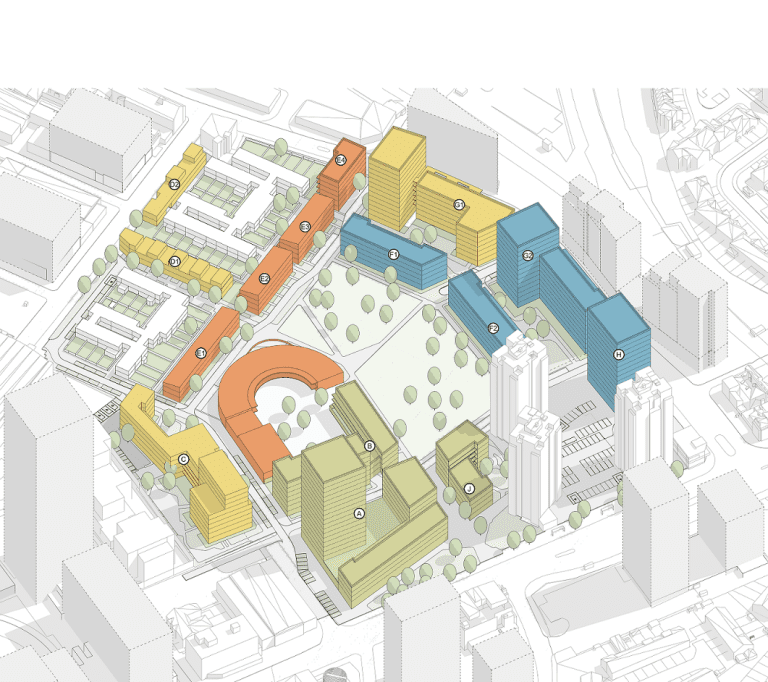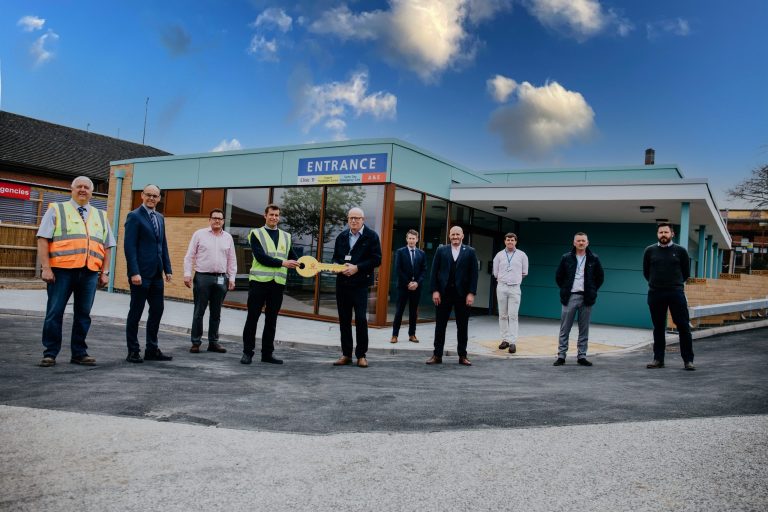THERE IS no secret that as an industry we need to do more to look after our employees. The sector does go the distance when caring for physical health as this is associated with safety, but as our wider understanding of mental wellbeing grows, we cannot ignore it. National framework provider Pagabo is pushing forward with key wellbeing initiatives, including its ongoing partnership with leading health tech brand Moodbeam. In September, the Office for National Statistics (ONS) published data for 2020, which shows that for every 100,000 construction workers, 30 took their own lives. The figures are horrendous when the rates in the industry are compared to other kinds of jobs. Glasgow Caledonian University professor Billy Hare has also carried out analysis of rates of suicide in different sectors, which found that construction workers are 3.4 times more likely to take their own life. Charley Wainwright of Pagabo said: “The latest ONS stats and the analysis carried out by Professor Billy Hare is striking – especially when we look at the past five years and across other industries. While the rate has remained fairly steady between 2015 and 2020 for other professions, the construction figure has gone up by five percentage points, from 25 in 100,000 in 2015, to 30 in 100,000 in 2020. “This ongoing issue clearly isn’t going away and instead is becoming even more prevalent, which is why as an industry we need to find new ways to manage this collective issue. We have been working in partnership with health tech brand Moodbeam to test its unique solution across the industry and have concluded a trial across 13 construction businesses. “Mental wellbeing is a complicated issue. Much like a hard hat will not stop you from cutting your hand, there needs to be a network of safety nets and personal protective equipment (PPE) to help protect workers – and Moodbeam can be seen as PPE for mental wellbeing.” The trials saw more than 380 volunteers* from 13 businesses – including Kajima Partnerships, Pick Everard, and Faithful+Gould – across the industry using Moodbeam’s wearable wellbeing solution. The wristband featured two buttons – a yellow one for the user to press when feeling good, and a blue one for when they were feeling not so good. Organisations were able to visualise this data and see how their teams and individuals were feeling, with a view to being able to identify where changes could be made, or additional support provided to improve more positive wellbeing at work. Feedback from volunteers following the three-month trial has shown that more than half of the participants believe Moodbeam’s initiative should be introduced across the industry. The trials have concluded at a time that Moodbeam has adapted its service offering post-pandemic, launching a more accessible and discrete option of a direct-entry mobile app. The new app features yellow and blue buttons to mirror the original wristband hardware used in the trials, with the revamped dashboard giving organisations even more insight into how their people are feeling across teams, departments and locations. One of the companies that took part in the trials was built environment developer Kajima Partnerships, which had 20 volunteers take part. Talking about their experience in the trials, project director Richard Coe said: “Looking after our staff is something at the heart of our business. However, as the pandemic started to take hold, we were really concerned about staff mental health and wellbeing as they had to start working from home and to juggle personal and professional lives and stresses against the backdrop of Covid-19. “The concept and simplicity of Moodbeam really appealed to us, along with the ability to stay in touch with how staff were feeling – and we found the trials really illuminating. We had volunteers sitting across several departments, so it was interesting to see how different departments were under different pressures at different times. “Not being in the office, we didn’t have the usual visual clues on how our people were feeling. Moodbeam really helped to alleviate this, and if anyone was consistently pushing blue then we were able to check in, find out why and mobilise solutions. We’re really pleased to see Moodbeam is adapting, how it does things further, and look forward to continuing the use of its new app.” Pagabo and Moodbeam will continue to work in partnership to drive change in the way the construction industry handles employee mental wellbeing. Speaking about the new app and continued partnership with Pagabo, Moodbeam’s co-founder Christina Colmer McHugh said: “The pandemic changed everything when it came to how, where and why we work, and we have adapted our offering in line with that and feedback from users to ensure Moodbeam provides businesses with the best tool possible to add to their approach to staff wellbeing. “Moodbeam is all about gaining a true understanding of situations, taking successes and failures forward as learnings in a manner that brings teams together to create the changes when and where they are needed the most. With the worsening statistics around mental wellbeing in the construction industry, we’re really pleased to hear the feedback from the initial trials and to continue our working relationship with Pagabo to make a difference to those working in the sector.” Simon Toplass, group chief commercial officer at The 55 Group, which is Pagabo’s parent organisation, added: “As the materials shortage and skills gaps continue to worsen, the pressure put onto contractors, developers and consultants will continue to grow as timescales and budgets tighten. The race to the bottom is still unfortunately very much on, and with this comes uncertainty and stress – and this is all against the backdrop of anything someone may be dealing with in their personal life, and uncertainty around what the winter months will bring. “Moodbeam is an effective tool for understanding the pressures on our people – and how they vary across businesses, teams and individual people. Earlier intervention is the key to tackling these wellbeing issues at or














